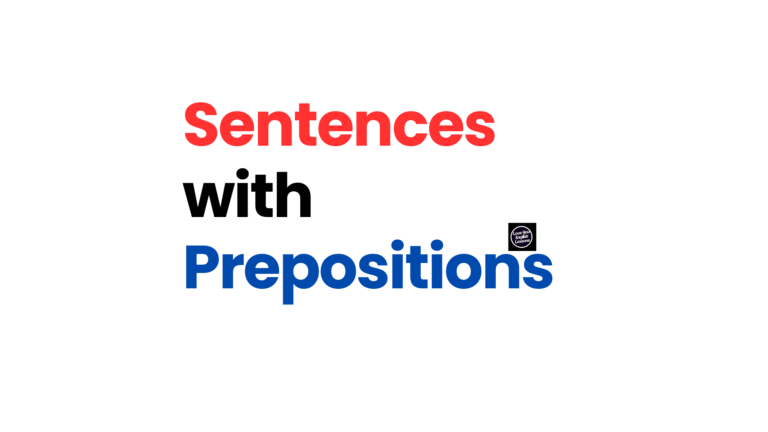Simple English Sentences to Use in Everyday Communication
There are 200 simple English sentences for everyday communication:
Greetings and Introductions
- Hello!
- Good morning.
- Good afternoon.
- Good evening.
- How are you?
- I’m fine, thank you.
- What’s your name?
- My name is John.
- Nice to meet you.
- Where are you from?
- I’m from India.
- How old are you?
- I am 25 years old.
- What do you do?
- I am a teacher.
Daily Activities
- I wake up at 7 a.m.
- I brush my teeth every morning.
- I take a shower daily.
- I eat breakfast at 8 a.m.
- I go to school at 9 a.m.
- I work from 9 to 5.
- I have lunch at 1 p.m.
- I return home at 6 p.m.
- I watch TV in the evening.
- I go to bed at 10 p.m.
Shopping
- How much is this?
- This is too expensive.
- Do you have this in a smaller size?
- Can I try this on?
- I want to buy this.
- Do you accept credit cards?
- Where is the nearest supermarket?
- I need to buy some fruits.
- This is my shopping bag.
- Thank you for your help.
Food and Eating
- I am hungry.
- I want to eat pizza.
- What is your favorite food?
- I love ice cream.
- Do you want tea or coffee?
- I don’t like spicy food.
- This tastes delicious.
- May I have some water?
- Let’s order food online.
- The food is too hot.
Travel and Transportation
- Where is the bus stop?
- I need a taxi.
- How far is the train station?
- Can you show me the map?
- I want to go to the airport.
- What time does the bus leave?
- This is my ticket.
- How much is the fare?
- I am going by car.
- Let’s walk to the park.
Health and Wellness
- I am feeling sick.
- I have a headache.
- Can you call a doctor?
- I need some medicine.
- Please take rest.
- Drink more water.
- I feel better now.
- Do you have a fever?
- I need to see a dentist.
- Take this tablet after meals.
At Home
- Please open the door.
- Close the window.
- Turn on the light.
- Turn off the fan.
- Can you clean the room?
- I am washing the dishes.
- Where is the remote control?
- Let’s cook dinner together.
- This is my bedroom.
- I need to charge my phone.
Weather
- It’s a sunny day.
- It’s raining outside.
- The weather is very cold.
- It’s too hot today.
- I love the winter season.
- It’s very windy today.
- The sky is clear.
- It might rain later.
- I need an umbrella.
- Look at the rainbow!
Social Conversations
- How was your day?
- I had a great day.
- What are your plans for today?
- Let’s go out for a walk.
- Do you want to watch a movie?
- I like spending time with friends.
- Can I call you later?
- I am busy right now.
- Sorry, I am late.
- Thank you for coming.
Questions and Requests
- Can you help me?
- What time is it?
- Where is the bathroom?
- Can you repeat that, please?
- May I borrow your pen?
- Could you give me directions?
- What is your phone number?
- Can I sit here?
- Do you know the way?
- Please speak slowly.
Expressing Emotions
- I am happy today.
- I feel sad.
- I am very tired.
- This makes me angry.
- I am so excited!
- I love this song.
- I don’t like this movie.
- You look great today!
- I am proud of you.
- I feel nervous.
Work and School
- I have a meeting at 10 a.m.
- I need to finish this project.
- Can you check my homework?
- What is the answer to this question?
- I forgot my notebook.
- Please send me the email.
- I need to study for my exam.
- This is my assignment.
- Let’s work on this together.
- I need a break.
On the Phone
- Hello, who is speaking?
- Can you call me back?
- I am on another call.
- Please leave a message.
- My phone battery is low.
- I will call you in 10 minutes.
- The signal is not good here.
- I missed your call.
- Thank you for calling.
- Talk to you later.
Emergency Situations
- Please call the police.
- I need help immediately.
- There’s a fire!
- Is anyone hurt?
- Call an ambulance now.
- I lost my wallet.
- Someone stole my bag.
- Stay calm.
- Where is the nearest hospital?
- I am lost.
General Phrases
- What’s the matter?
- That’s a good idea.
- I agree with you.
- I don’t understand.
- Can you explain this?
- I am not sure.
- Let’s do it tomorrow.
- What do you think?
- I need more time.
- It’s okay.
Likes and Dislikes
- I love this book.
- I don’t like coffee.
- My favorite color is blue.
- I enjoy reading.
- I hate waking up early.
- I like listening to music.
- Do you like dancing?
- I love watching the sunset.
- I don’t enjoy cooking.
- I prefer tea over coffee.
Apologies and Thanks
- I am sorry for being late.
- Please forgive me.
- I didn’t mean to hurt you.
- Thank you very much.
- I really appreciate it.
- Thanks for your help.
- I owe you one.
- That’s so kind of you.
- Sorry for the trouble.
- You’re welcome.
Plans and Future
- What are you doing tomorrow?
- I will call you later.
- Let’s meet at 5 p.m.
- I have plans for the weekend.
- I want to travel next year.
- I am going to the mall.
- Can we go to the park?
- I will think about it.
- Let’s go together.
- See you soon.
Family and Friends
- This is my mother.
- He is my best friend.
- My brother is older than me.
- We live in the same house.
- Do you have any siblings?
- My family is very kind.
- I love spending time with my friends.
- She is like a sister to me.
- We often go out together.
- My parents are very supportive.
Expressions of Time
- What day is it today?
- Today is Monday.
- I will be there at 3 p.m.
- It’s already 7 o’clock.
- I am late for the meeting.
More sentences:
- 160+ Simple English Sentences for Debates
- 50 English Sentences About Vacations
- 50 English Sentences About Celebrations
- 70 English Sentences About a City







